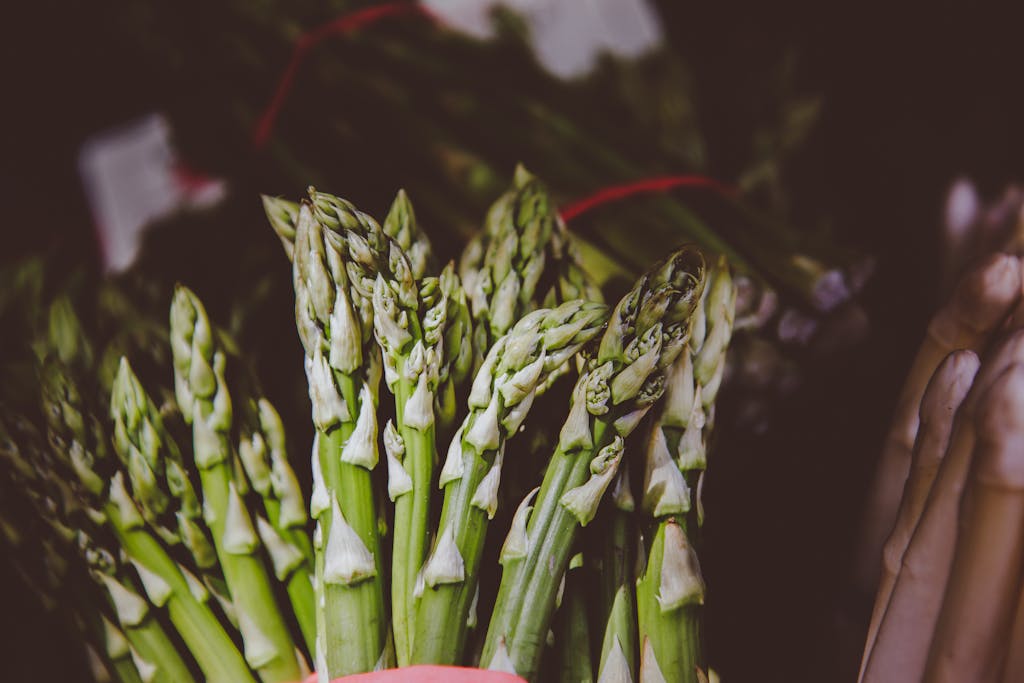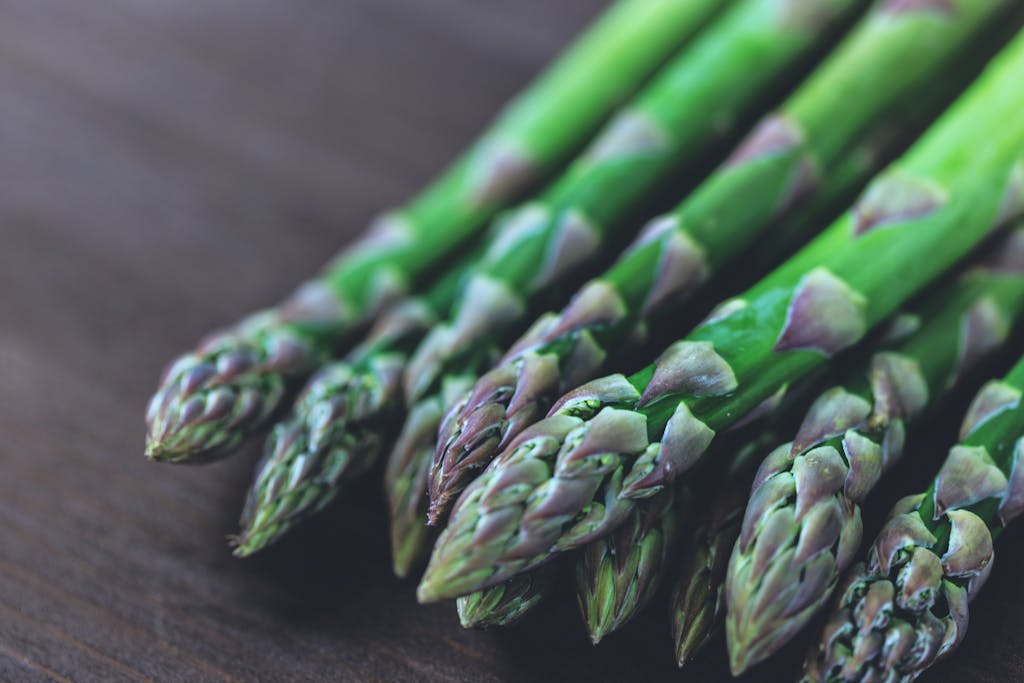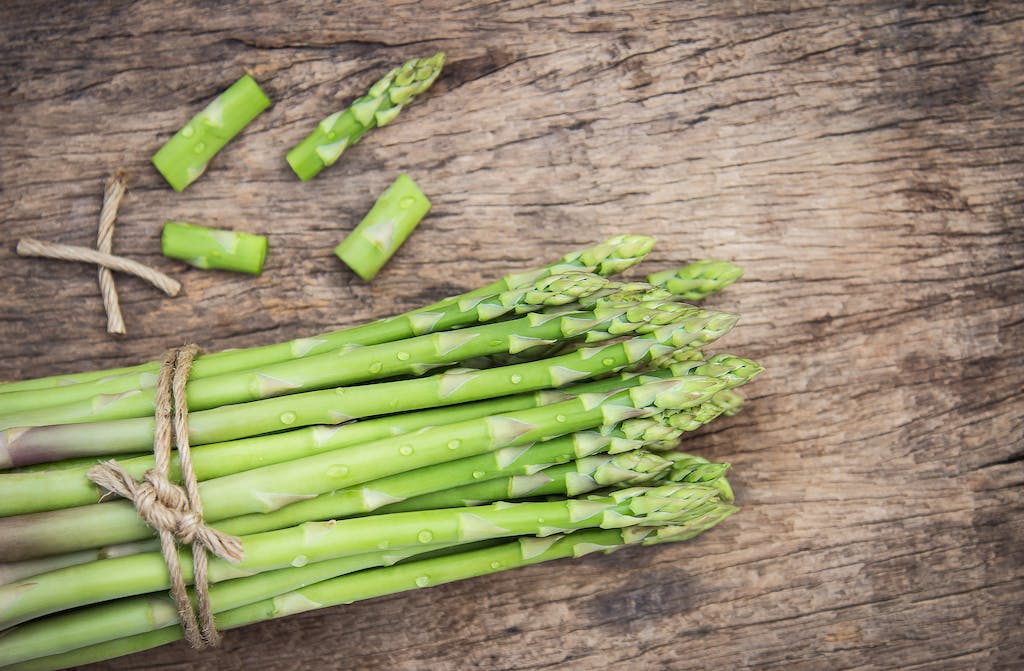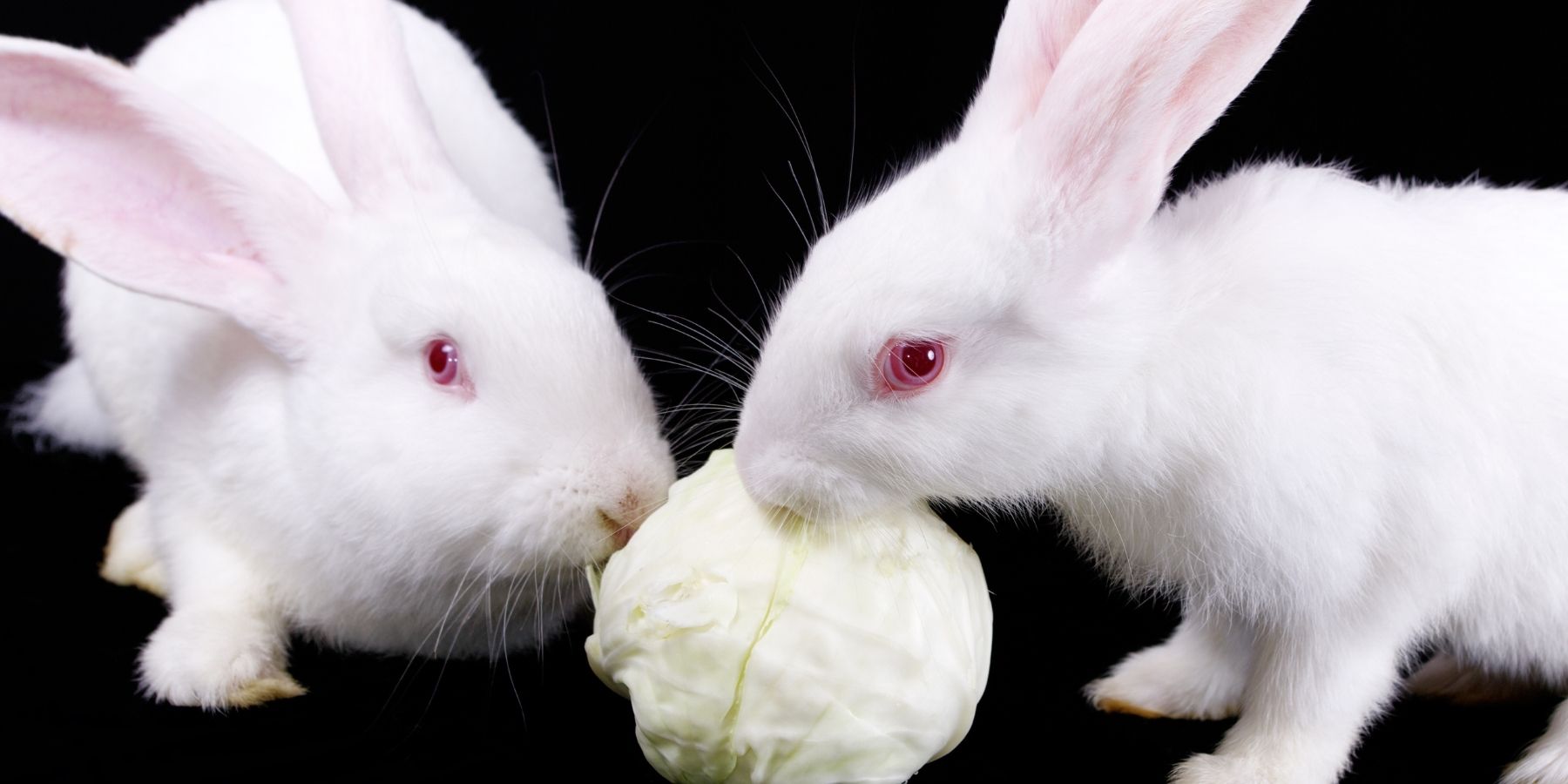Can Rabbits Eat Asparagus? A Comprehensive Guide to Feeding Your Bunny
As a rabbit owner, you want to make sure your bunny is getting all the necessary nutrients they need to thrive. While hay and pellets are the foundation of a rabbit’s diet, many owners wonder if they can supplement their pet’s meals with fresh veggies. One vegetable that may come to mind is asparagus. But can rabbits eat asparagus?
The short answer is yes, rabbits can eat asparagus. Asparagus is a safe and healthy vegetable for rabbits to consume in moderation. As with any new food, introduce asparagus gradually and in small amounts to avoid upsetting your rabbit’s digestive system. Additionally, it’s recommended to only feed your rabbit organically grown asparagus to avoid exposing them to harmful pesticides.

Nutritional Profile of Asparagus
Asparagus is a nutrient-rich vegetable that can be a healthy addition to a rabbit’s diet when given in moderation. It is low in calories and high in vitamins, minerals, and fiber.
Vitamins and Minerals in Asparagus
Asparagus is a good source of several vitamins and minerals that are essential for a rabbit’s health. It is particularly high in Vitamin K, which helps with blood clotting and bone health. Asparagus also contains Vitamin C, which is great for immune system function, and potassium, which helps regulate blood pressure.
Fiber Content and Digestive Health
Asparagus is high in fiber, which is helpful for maintaining good digestive health in rabbits. Fiber helps to keep the digestive system moving and can prevent constipation and other digestive problems. Asparagus also contains antioxidants, which can help protect against cell damage and may have other health benefits.
Overall, asparagus can be a healthy addition to a rabbit’s diet when given in moderation. Introduce new foods slowly and to monitor your rabbit’s reaction to them. Asparagus should not be given as a dietary staple for a rabbit as it has high water content which can put some laxative effect on its health. Asparagus and other vegetables with high water content can be an exceptional addition to the rabbit’s diet.
Benefits of Asparagus for Rabbits
Asparagus is a nutritious vegetable that can offer several health benefits to your rabbit. In this section, we will explore some of the benefits of asparagus for rabbits.
Supporting Rabbit Health with Asparagus
Asparagus is a great source of fiber, which is essential for maintaining a healthy digestive system in rabbits. Fiber helps promote the growth of beneficial bacteria in the gut, which aids in digestion and prevents the growth of harmful bacteria. It also helps prevent hairballs, which can be a common problem in rabbits.
Asparagus is also rich in vitamins and minerals that are important for supporting overall rabbit health. For example, it contains vitamin K, which plays a crucial role in blood clotting. It also contains vitamin C, which supports a healthy immune system.
The Role of Asparagus in a Balanced Diet
While asparagus can offer several health benefits to rabbits, it should be fed in moderation as part of a balanced diet. Rabbits require a diet that is high in fiber and low in fat to maintain optimal health.
Asparagus can be a great addition to your rabbit’s diet, but it should not be the only vegetable that they eat. Offer a variety of vegetables to ensure that your rabbit is getting all of the nutrients they need. Some other vegetables that are safe for rabbits to eat include carrots, kale, and spinach.
In conclusion, asparagus can be a healthy addition to your rabbit’s diet when fed in moderation as part of a balanced diet. It can offer several health benefits, including supporting a healthy digestive system and immune system. Remember to check with your veterinarian before making any changes to your rabbit’s diet if you have any concerns.

Feeding Guidelines for Rabbits
If you are planning to feed asparagus to your rabbit, do so in moderation and as part of a balanced diet. Here are some guidelines to follow:
How Often to Offer Asparagus
Asparagus can be offered to your rabbit once or twice a week as a treat. Remember that asparagus should not be the main part of your rabbit’s diet. Instead, it should be offered in combination with other vegetables, hay, and high-quality rabbit pellets.
Appropriate Amounts of Asparagus
The amount of asparagus you offer to your rabbit should be based on their body weight. As a general rule, you should offer 1-2 spears of asparagus per 2 pounds of body weight. This means that if your rabbit weighs 4 pounds, you should offer 2-4 spears of asparagus.
When introducing a new food to your rabbit, start with a small amount and gradually increase the amount over time. This will help your rabbit adjust to the new food and prevent any digestive issues.
Asparagus is safe for rabbits to eat, but it should be offered in moderation and as part of a balanced diet. By following these feeding guidelines, you can ensure that your rabbit stays healthy and happy.
Potential Risks and Considerations
Asparagus is a safe and healthy vegetable that can be included in your rabbit’s diet. However, there are a few potential risks and considerations that you should be aware of to ensure your rabbit’s health and well-being.
Avoiding Digestive Issues
Asparagus is a high-fiber vegetable that can help promote healthy digestion in rabbits. However, feeding too much asparagus or introducing it too quickly into your rabbit’s diet can cause digestive upset, gas, and diarrhea. To avoid these issues, introduce asparagus gradually and in small amounts.
Note that asparagus is a watery vegetable, which means that feeding your rabbit too much of it can lead to softer stool. If you notice any changes in your rabbit’s stool, immediately stop feeding any other food except hay and water. You should also immediately bring your rabbit to a veterinarian.
Understanding Toxicity and Allergens
Asparagus is not toxic to rabbits, but it does contain oxalic acid, which can be harmful in large amounts. Oxalic acid can interfere with calcium absorption, which can lead to bladder stones and other health problems.
In addition, some rabbits may be allergic to asparagus or other vegetables. If your rabbit shows signs of an allergic reaction, such as itching, swelling, or difficulty breathing, stop feeding asparagus immediately and consult your veterinarian.
To ensure your rabbit’s health and safety, monitor their diet carefully and introduce new foods gradually. Always consult with your veterinarian if you have any concerns about your rabbit’s diet or health.
Preparing Asparagus for Your Rabbit
Asparagus is a great treat for rabbits, and you’ll want to prepare it properly to ensure they stay healthy. Here are some tips on preparing asparagus for your rabbit.
Washing and Cutting Asparagus
Before feeding asparagus to your rabbit, wash it thoroughly to remove any pesticides that may be present. Washing the asparagus will also help to remove any bacteria that may be present on the stalks.
To wash the asparagus, rinse it under cold water and use a vegetable brush to gently scrub the stalks. If the asparagus is particularly dirty, you may need to soak it in cold water for a few minutes before washing it.
Once the asparagus is clean, you can cut it into small pieces that are easy for your rabbit to eat. Cut the asparagus into bite-sized pieces, and remove any tough or woody parts of the stalks.
Asparagus can be a healthy and tasty treat for your rabbit. Just make sure to wash it thoroughly before feeding it to your rabbit, and cut it into small pieces that are easy to eat. Keep in mind that this treat should be given in moderation, as part of a balanced diet.







![Signs You Have a Happy Rabbit: What Every Bunny Parent Should Know [2025 Guide] Questions To Ask A Rabbit Breeder](https://rabbitcarebasics.com/wp-content/uploads/2022/03/Questions-To-Ask-Rabbit-Breeders.jpeg)